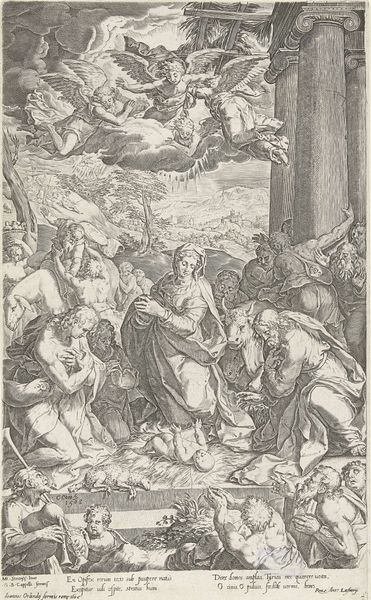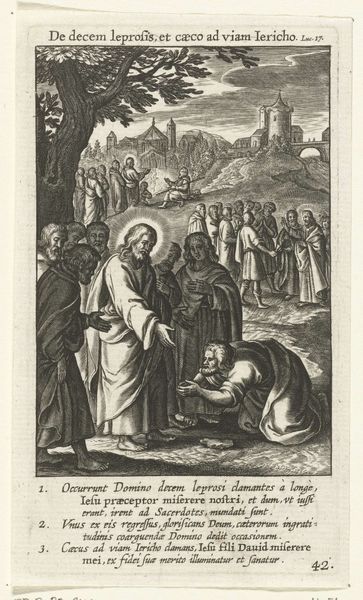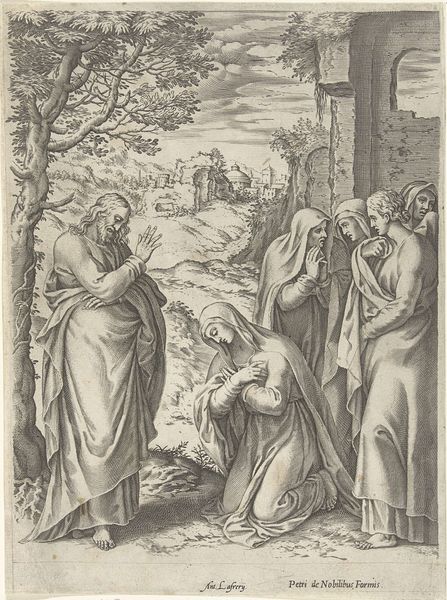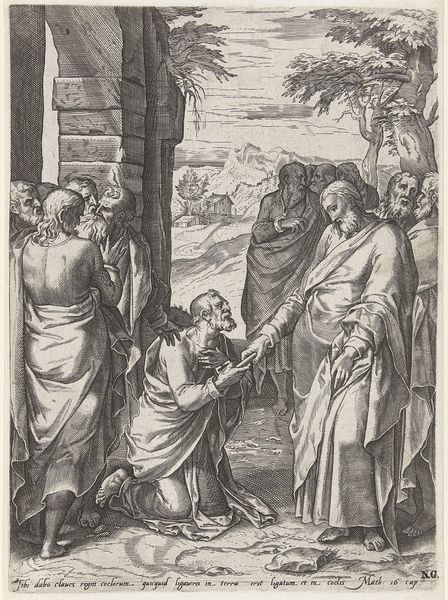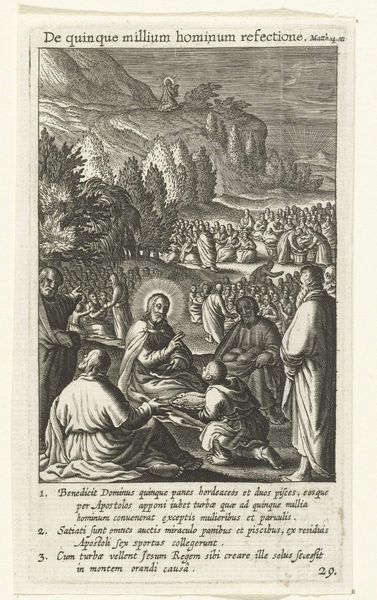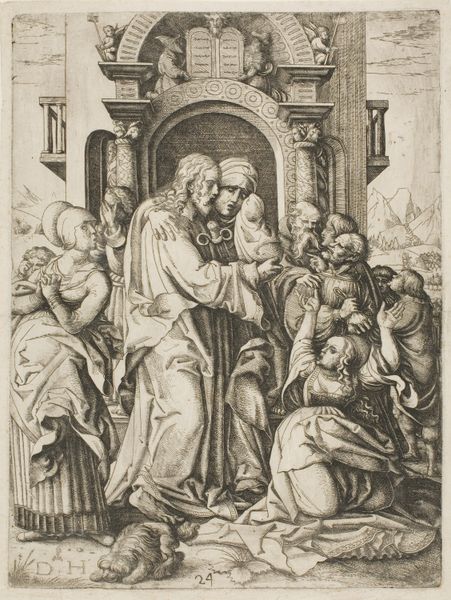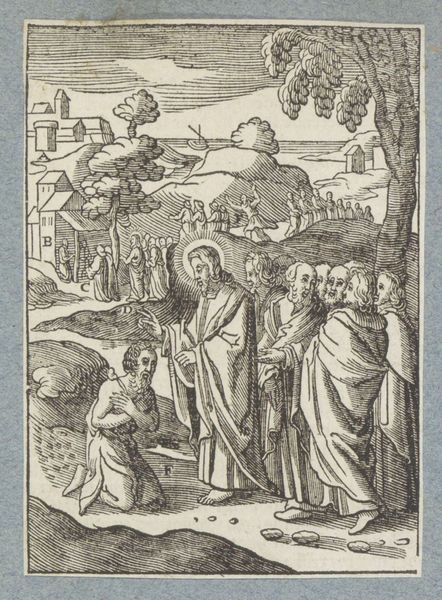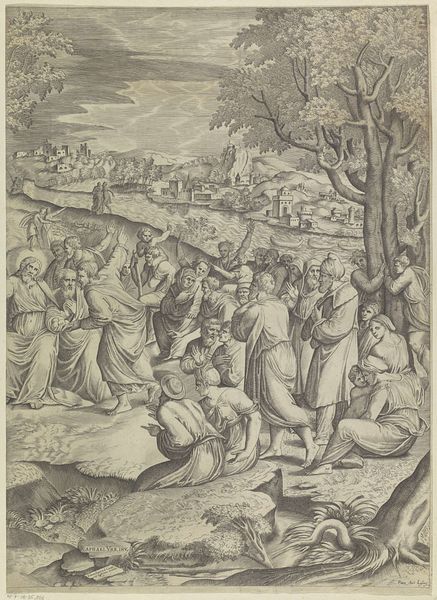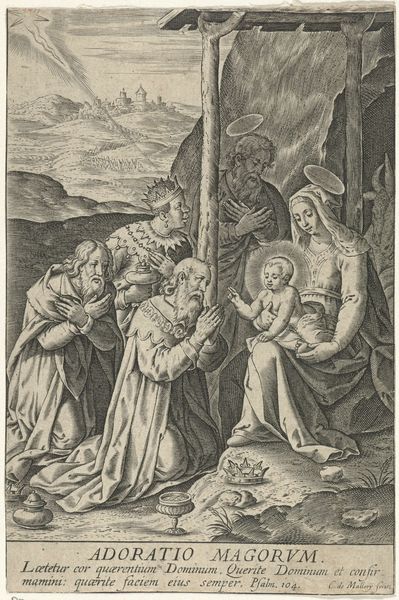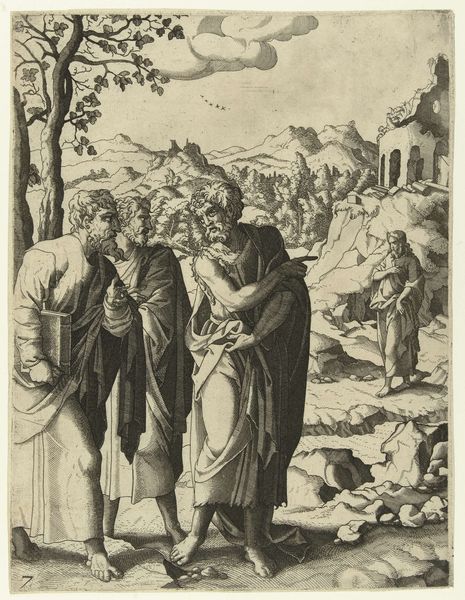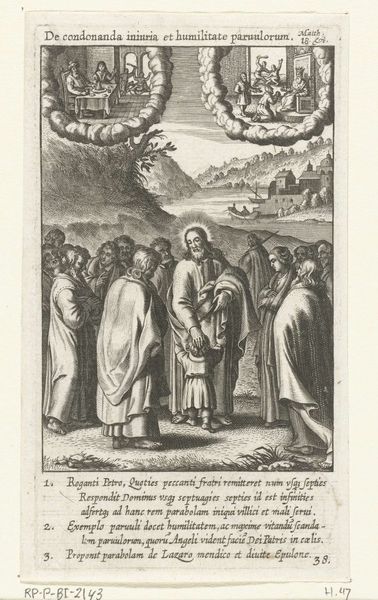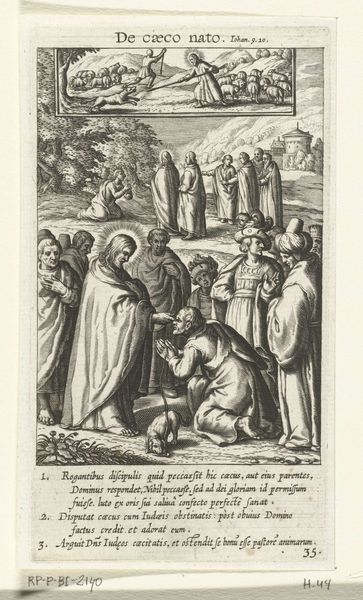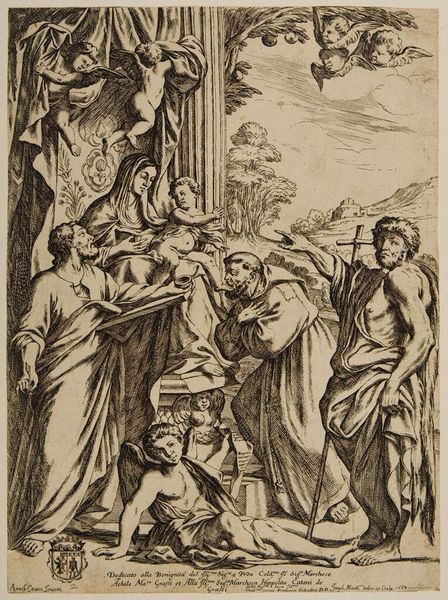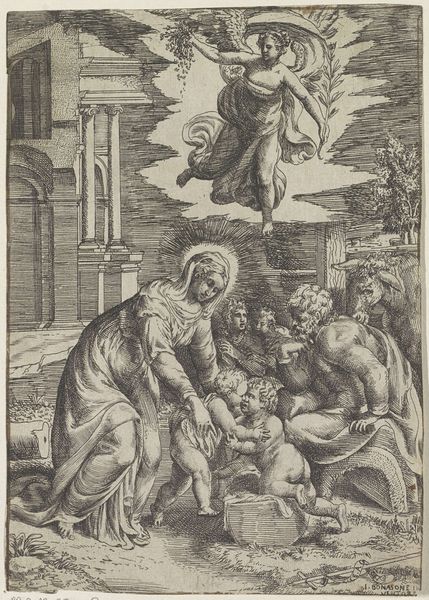
print, engraving
# print
#
pen illustration
#
old engraving style
#
landscape
#
figuration
#
line
#
history-painting
#
northern-renaissance
#
engraving
Dimensions: height 231 mm, width 146 mm
Copyright: Rijks Museum: Open Domain
This engraving by Wierix, from around 1600, depicts the Raising of Lazarus. Notice the tomb, a dark cavity from which Lazarus emerges, wrapped tightly in his burial cloths. This scene teems with symbolic weight, deeply rooted in Christian iconography. The gesture of binding, so evident in Lazarus’s wrappings, reminds us of images of defeated enemies throughout history, from ancient Roman battle reliefs to depictions of prisoners. Yet, here it carries a twist. What was once a symbol of subjugation is now a symbol of death itself, overcome by divine power. The act of unwrapping becomes an act of liberation, not just for Lazarus but symbolically for all believers. Consider how the act of binding and unbinding has been interpreted across cultures—the emotional and psychological implications of such powerful imagery, engaging viewers on a subconscious level. The cyclical progression of symbols continues as we see how ancient motifs resurface and evolve, carrying echoes of past meanings while adapting to new contexts, endlessly shifting through history.
Comments
No comments
Be the first to comment and join the conversation on the ultimate creative platform.
